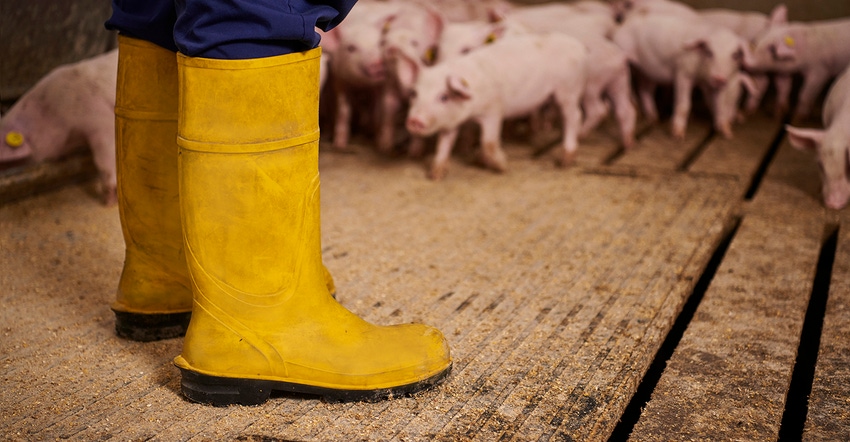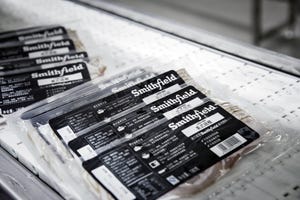The rapid and ruinous spread of COVID-19 is a direct account of what ASF might look like spreading through our swine herds.
May 1, 2020

Sponsored Content
By Eric Farrand, United Animal Health
The swine industry is no stranger to disease. Since the beginning, disease challenges have been an obstacle for all animal protein producers and continue to be an ongoing threat. It requires constant attention and vigilance to protect our animals.
Biosecurity continues to be a big part of our business and, today, we have seen COVID-19 spread through the human population eerily similar to how African swine fever could spread through the swine population. We have seen, too, some of the same containment measures taken with humans today — lockdown of entire populations to contain the virus — and we have also witnessed failures in biosecurity protocols that led us to that point. It's a scary lesson and all the more reason to be sure our biosecurity protocols are being followed rigorously to prevent any foreign animal disease from entering the food chain.
The rapid and ruinous spread of COVID-19 is a direct account of what ASF might look like spreading through our swine herds. Here are two lessons we should learn from this pandemic.
Biosecurity is economic security. An outbreak literally shuts down the population and limits movements and interactions to slow the spread. This, as we have painfully learned firsthand, shuts down more than population movements; it shuts down the economy. The only way to have prevented the harsh impact would have been better biosecurity before the break. Only after the outbreak in the United States were there public service announcements about how to wash your hands, how to cover your mouth, what to do when you are sick, how to address other sick people, what sanitation works best (alcohol-based hand sanitizers), and how we should interact with others. After an outbreak, these protocols are too late to stop the spread and are merely methods to slow the spread, or flatten the curve as we know it today. A relentless pursuit in continuous improvement in biosecurity is economic security. And, just like COVID-19 with the human population, everyone has a role in prevention.
It's always bigger than you think. There are differing views on how devastating an outbreak of ASF could be on the swine population. Some views pointed to China and what appeared to be their poor handling of the disease, not being transparent with the loss numbers and not taking swift actions to quarantine the outbreaks. However, watching COVID-19 spread should provide us all with at least one big insight: it's a bigger deal than we think. Whatever our expectations on how our industry would respond to an ASF break, COVID is showing us that an outbreak of a virus this contagious would likely be bigger and more catastrophic than we previously might have thought. And, it will probably be around a lot longer than we thought. These are tough enemies that never go quietly.
Before 9/11, no one could have imagined standing in a security line in your stocking feet. No one could have predicted this future that now is a common, expected part of life. We don't expect to follow a friend to the boarding gate to say goodbye any more than we'd expect to see someone light a cigarette mid-flight. Yet, these things all used to happen and used to be considered normal.
Certain events change life forever, and this pandemic will be no different. Now, more than ever, we must focus on biosecurity and be sure we aren't letting our guard down. This includes considering the often-overlooked feed delivery. The truck travels farm to farm, and the driver climbs out of his cab and into feed bins. Do you know where your feed delivery truck has been? Maybe it's time you do.
About the Author(s)
You May Also Like


